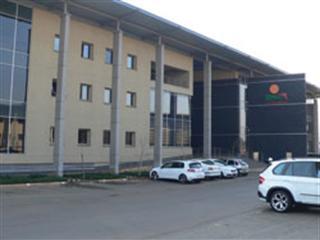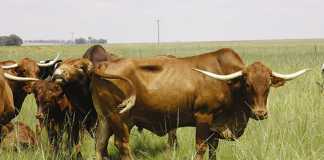
Over the past few years, Land Bank has managed a significant turnaround and grown its loan book. What is the bank doing differently?
We’ve started to provide our clients with multiple financing facilities. In the past, we provided only a credit account, which is a big working capital facility. But now we’re putting together various financial solutions that meet our clients’ requirements. This has helped us to grow the performing loan book by 54% by the year ended March 2012. Many of our clients now come to us to increase their banking facilities, rather than using multiple banks. A major boost was our acquisition in December 2011 of the Afgri lending book, which was worth over R2,4 billion.
Your chairman mentioned that clients who had left the bank were now coming back. Why were you losing them?
When the bank was struggling, agribusinesses were deserting it because they thought it was not sustainable. In short, they doubted whether we would be able to carry on funding them. I think our biggest blow was when Senwes left in 2008, which cost us about R1 billion. Since then, however, the bank has implemented a successful turnaround strategy, and clients have been returning. Many of them are unhappy with the financing model used by commercial banks.

Lebogang Serithi
They feel that their loan conditions are not aligned with the realities of the agricultural sector. They prefer a financier who understands the sector and one who is able to stay with them through good and bad. Currently, Land Bank finances all but two provincial agribusinesses.
What makes you different to commercial banks?
Commercial banks focus on multiple industries, such as mining and construction, while Land Bank focuses specifically on the agriculture sector. This gives us greater understanding of the sector than that held by many commercial banks. The long relationship we have with our clients also separates us from commercial banks. Some of our clients have been with us for over 80 years. We also provide finance that is slightly cheaper than commercial banks.
The bank’s target is to hold a 35% share of the agricultural lending market by 2016. What percentage do you hold now and why is it important for you to increase your share?
We currently have a market share of about 31%. Holding a bigger portion will help us to have a positive influence on food security. The bigger we are, the better we’ll be able to finance the sector adequately. Being big allows us to take risks to make sure agricultural industries don’t die. For example, the ostrich industry is currently going through a rough patch. We’ve provided a finance facility to Klein Karoo International, one of the biggest ostrich exporters, in an effort to rescue the industry. This is because Land Bank is a dedicated agricultural financier. No other financier will do this.
What is the bank’s intention with the seven golf estates it invested in previously?
Last year we managed to dispose of one, and our intention is to dispose of them all. However, we have to make sure we do this in a responsible manner. Our portfolio from the estates is worth R44 million. We are currently negotiating a settlement agreement for a big estate in KwaZulu-Natal.
How will government’s new system of leasing farms to land reform beneficiaries instead of giving them title deeds affect the bank’s lending to small-scale farmers?
It does not make things easy for us. We’ve had to change our credit policy. Previously, we used land or other assets as security when a farmer wanted credit from us. But we’ve changed our lending criteria, specifically for small-scale farmers, and now take other alternatives into consideration.
For example, we take the lease agreement or produce as security. If we make use of a lease agreement, the structure of the loan will depend on what we are funding. If we are lending money for a citrus orchard, for instance, the lease would need to be longer to ensure that the orchard is fully productive. This is also to make sure that if the client is unable to repay the loan, we can arrange to have another person take over the lease and continue production so that we can get our money back.
How does the Emerging Farmer Support Programme work?
There were many complaints after the bank repossessed farms from emerging farmers who used land reform farms as security and were unable to service their loans. As a result, the respective ministers of Finance, Agriculture, Forestry and Fisheries, and Rural Development and Land Reform, together with Land Bank, worked together to produce a solution. We came up with the Emerging Farmer Support Programme, which was approved by Cabinet in December 2010, and are rolling this out with the help of Rabobank in the Netherlands, one of the biggest agricultural banks in the world.
With this scheme, we set aside and freeze the farmer’s debt so that it doesn’t accumulate interest for about five years. Then we provide additional finance, but this time with a support structure in place which ensures that the farmer is able to produce and is sustainable. This goes on until we are certain the farmer is able to start repaying the loan. We will also stretch out the payment period, depending on the farmer’s situation, for up to 20 years.
Can you explain the bank’s Wholesale Finance Facility?
With the Wholesale Finance Facility, we work with micro industry lenders, such as Akwanze in the sugar cane industry. We finance them at a lower interest rate so that they in turn can lend to their clients. They have to provide loans at not more than 4% interest. Last year, we also released about R70 million to the National Emergent Red Meat Producers’ Organisation to disburse to farmers through its infrastructure development fund.
Contact Land Bank on 012 686 0500 or toll-free on 0800 005 259 or visit www.landbank.co.za













